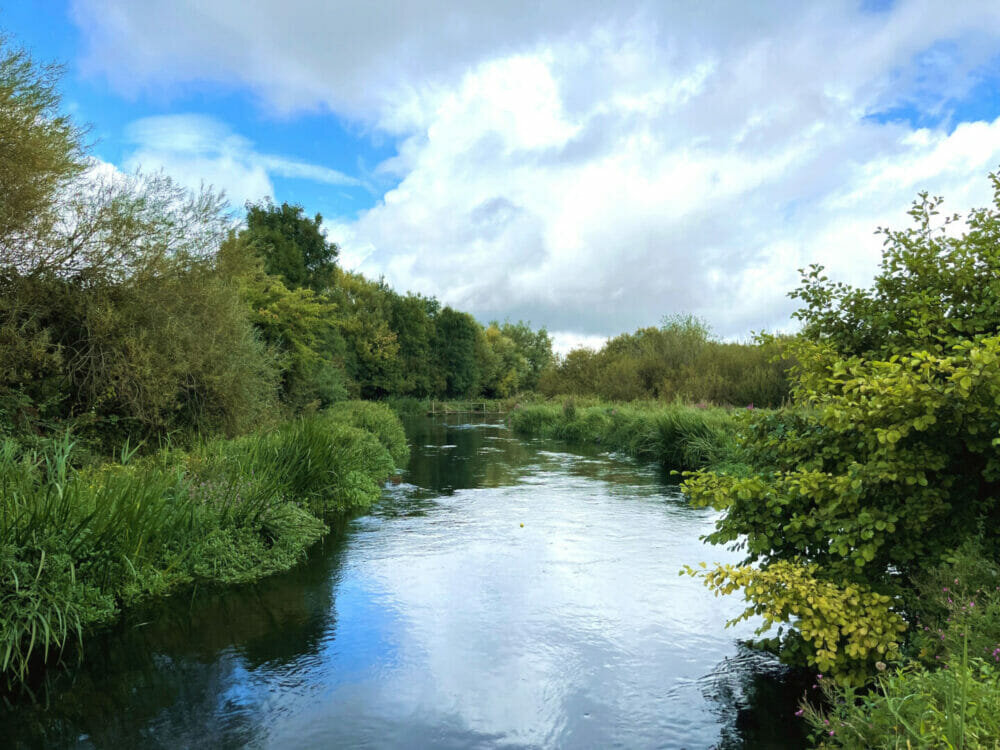Renowned for crystal clear water and trout fishing, the rivers Test and Itchen are two of the world’s most famous chalk streams.
The ecology of these rivers is therefore extremely important, and a network of twenty-one continuous water monitoring stations has recently been established for Southern Water, in compliance with its abstraction licence for the Testwood water supply works near Southampton. The Test and Itchen catchments supply much of Hampshire’s public water needs, as well as a significant proportion of the Isle of Wight’s requirements. Both rivers drain into Southampton Water, and in turn, into the Solen`t.
Meteor Communications was contracted to install and maintain a network of its ESNET (Environmental Sensor network) systems in early 2021. “We have been delighted with the performance of the ESNET systems,” says Tim Taylor, Water Resources Compliance Advisor at Southern Water. “They were installed and became operational extremely quickly, measuring the key parameters, with data from 30-minute readings immediately available via the MeteorCloud® web portal. We have experienced virtually no down-time with this network, so we are generating excellent continuous datasets.”
Under the terms of the water monitoring contract, Meteor Communications have complete responsibility to deliver accurate, real time data to key stakeholders within Southern Water and externally. This includes site selection, installation and ongoing maintenance. Scheduled site visits and laboratory calibrations ensure that data is robust and reliable, with proactive and reactive site visits. “The Meteor Water Quality as a Service (WQaaS) model is the differentiator to other systems,” explains Meteor’s MD, Matt Dibbs. “By establishing a dedicated Water Quality Services Hub, we can calibrate sondes in laboratory conditions which ensures the accuracy and reliability of the data, and minimises time spent on site.”
Each of the 21 ESNET systems measures temperature, conductivity, dissolved oxygen, turbidity, ammonium, and pH using EXO multiparameter sondes. Pressure transducers are employed for the measurement of water level. The equipment is frequently located in visually sensitive and publicly accessible spaces, so a variety of discrete mounting options have been developed to ensure robust data delivery with appropriate equipment protection.
Southern Water’s network of monitors is comprised of both portable and kiosk-based ESNETs, with version selection dictated by site conditions and access. No pre-existing power or communications capability is necessary for either version, with solar panels providing sufficient charge for the units’ internal batteries.
The MeteorCloud® platform provides secure data visualisation, analysis and alarms to Southern Water, and also provides the Environment Agency with real-time access to the data, with agreed alarms for both water quality and water level limits. For example, whilst operating under a drought permit, the system will issue an alert when five consecutive water quality measurements on any sonde breach the alarm condition. Once an alarm has been triggered, Southern Water is able to implement remedial measures such as river aeration. However, where the alarm is a result of low water, abstraction would be stopped.
As part of its agreement with Southern Water, Meteor Communications’ staff check the network remotely every day. “This is a major benefit,” explains Tim Taylor. “By constantly checking the performance of the network, Meteor is able to implement corrective measures very quickly. Consequently, we are able to take timely action to protect river water quality and remain in compliance with our abstraction licence.”
Summarising, Matt Dibbs says: “There are a number of key factors underpinning the successful implementation of a water monitoring network such as this. First, the equipment has to be robust, reliable and able to operate in remote locations on solar power. Second, communications and data management have to be seamless and easy to use. Third, the support infrastructure needs to be in place to check the system daily; to service and calibrate spare sondes; and to visit all sites regularly for sonde swaps.
“All of these factors mean that we have had to make significant investment in staff and facilities. However, we now have over 700 ESNET systems operating all over the UK, so we have the experience and resources to ensure that they deliver valuable insights into the health of our rivers.”








